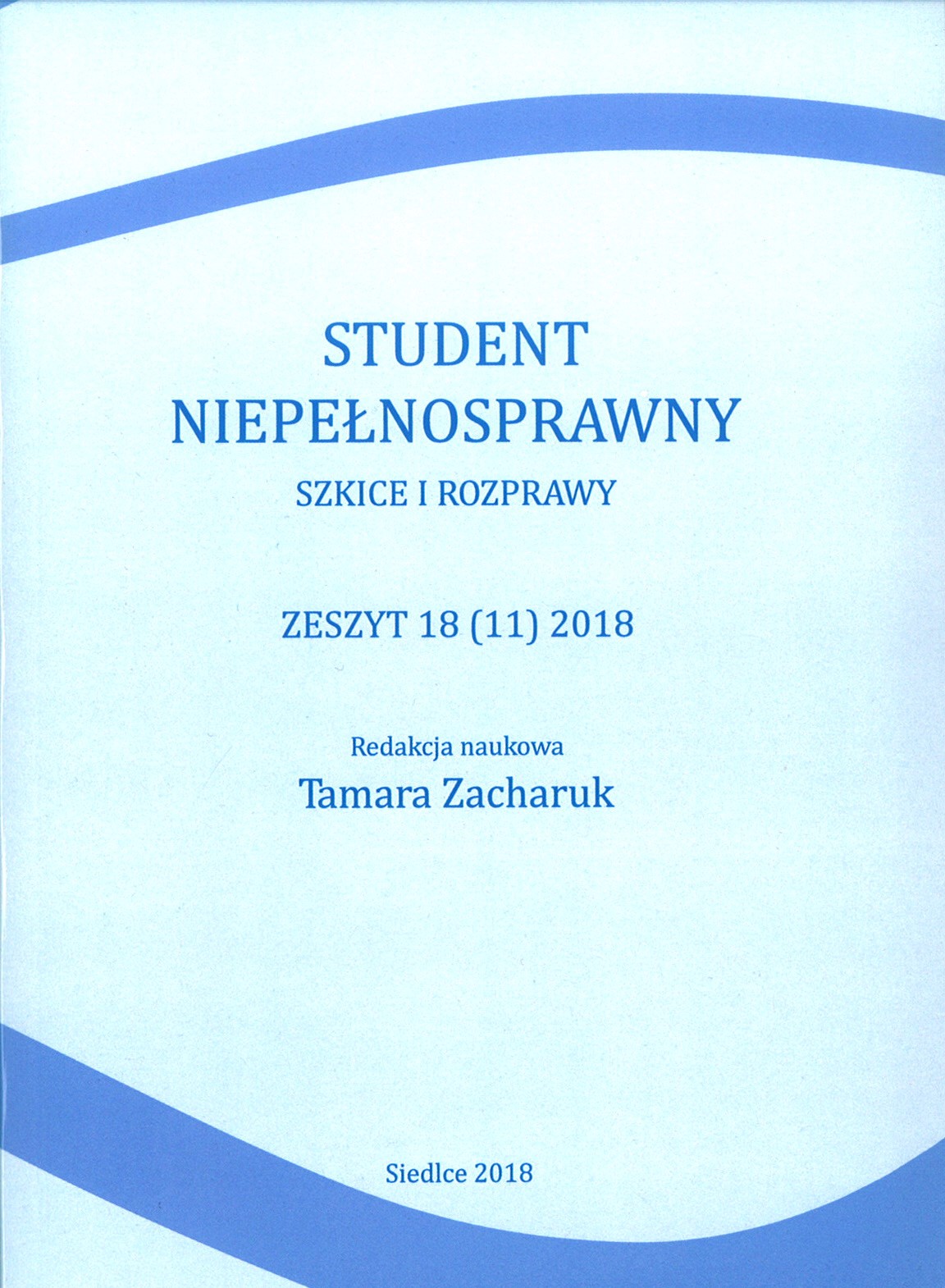Discrimination of people with intellectual disability in culture in the opinion of parents and students of pedagogy
Keywords:
discrimination, intellectual disability, participation in culture, parents, studentsAbstract
Individuals with intellectual disability are frequently victims discriminating behaviour. It is often discrimination due to the level of revealed abilities and the peculiarity of establishing individual contacts. The phenomenon of discrimination is especially harmful and dangerous if it is preferred by culture and art workers, organizers of cultural events and therapists. Experiencing any discriminating attitudes towards the forms of activity in culture taken by individuals with intellectual disability is especially painful for them. The author's research carried out with the diagnostic survey method among 60 parents and 115 students confirmed the occurrence of the phenomenon of discrimination towards individuals with intellectual disability in places where culture and art are spread. The properties describing the phenomenon of discrimination appeared essential primarily at the stage of critical understating the careers of those participants in culture and their effective adaptation including them in their environment, also the creative one.
Downloads
References
psychology: Social influence, attitude, group processes, and prejudice,
Reading MA, Addison-Wesley.
Branka M., Cieślikowska D. (red.) (2010), Edukacja antydyskryminacyjna, Podręcznik
trenerski, Wyd. Villa Decius, Kraków.
Cieślikowska D. (2010), Edukacja antydyskryminacyjna. Wiedza, [w:] M. Branka,
D. Cieślikowska (red.), Edukacja antydyskryminacyjna. Podręcznik
trenerski, Villa Decius, Kraków, s. 66-100.
Chlewiński Z., Kurcz I. (1992), Stereotypy i uprzedzenia, Instytut Psychologii
PAN, Warszawa.
Duckitt J.H. (1992), The social psychology of prejudice, Praeger, New York.
Crocker J., Major B. (2989), Social stigma and self-estea: The self-protective
properties of stigma, „Psychological Review”, 96, s. 608-630.
Jones E.E. (1986), Racism: A cultural analysis of the problem, [in:] J.F. Dovidio,
S.L. Gaertner (eds), Prejudice, discrimination and racism, Orlando, FL,
Academic Press.
Krauze-Sikora H. (2006), Edukacja przez sztukę, O edukacyjnych wartościach
artystycznej twórczości dziecka, Wyd. Naukowe UAM, Poznań.
Wojnar I., Kubin J. (red.) (1998), Kultura inspiracją kształcenia ogólnego, Elipsa,
Warszawa.
Wojnar I. (1997), Teoria wychowania estetycznego, Żak, Warszawa.
Ploch L. (2011), Animacja aktywizująca osoby z niepełnosprawnością w kulturze
artystycznej, [w:] T. Żółkowska, l. Konopska, D. Szarkowicz (red.),
Uszkodzenie, niepełnosprawność, upośledzenie – aspekty teoretyczne
i praktyczne w pedagogice XXI wieku, t. VII, Uniwersytet Szczeciński,
Szczecin.
Ploch L. (2014), Konteksty aktywności artystycznej osób z niepełnosprawnością,
Difin, Warszawa.
Winczorek P. (2000), Komentarz do Konstytucji Rzeczypospolitej Polskiej z dnia
2 kwietnia 1997, Warszawa.




